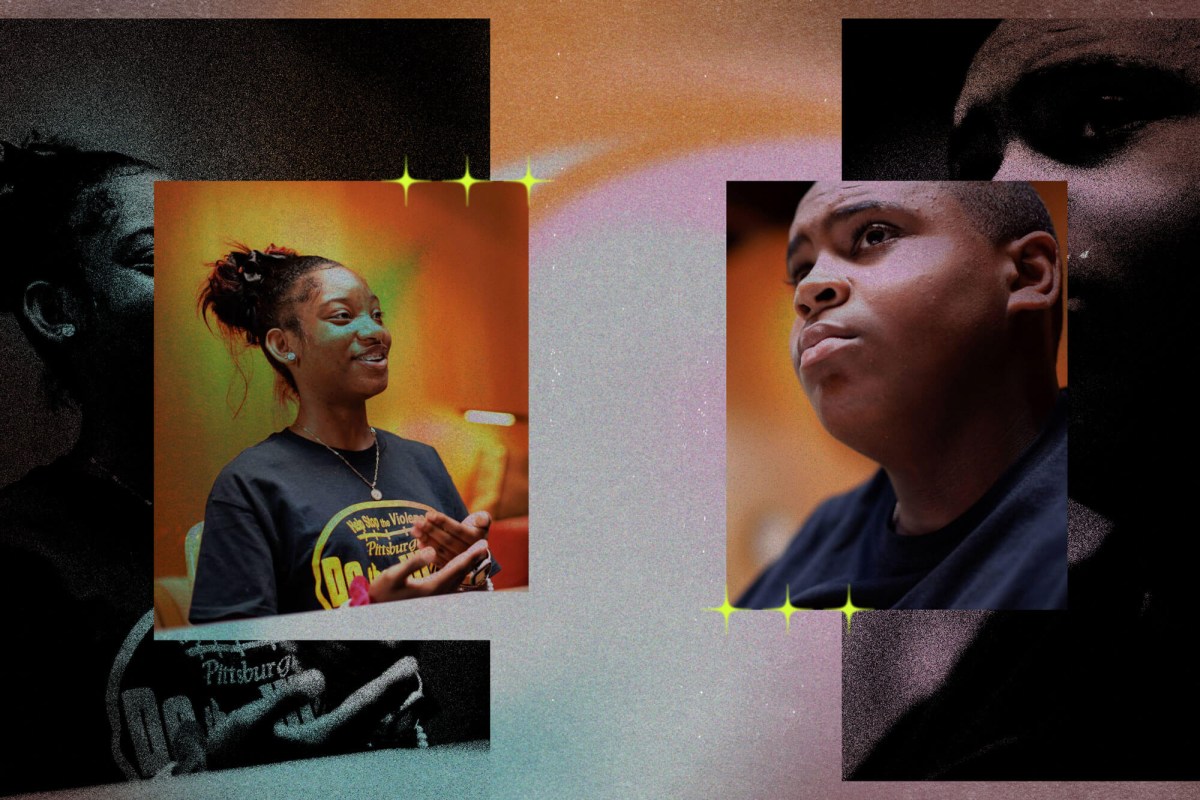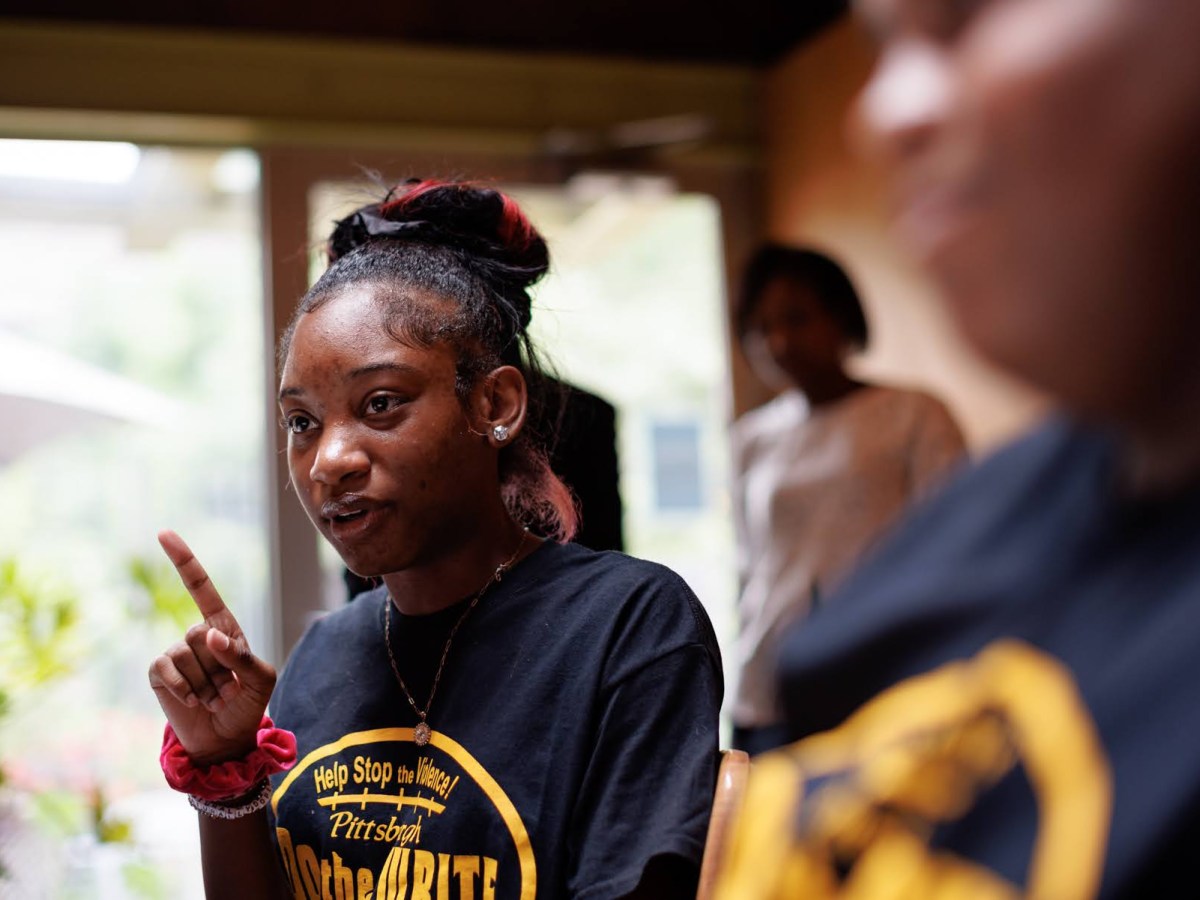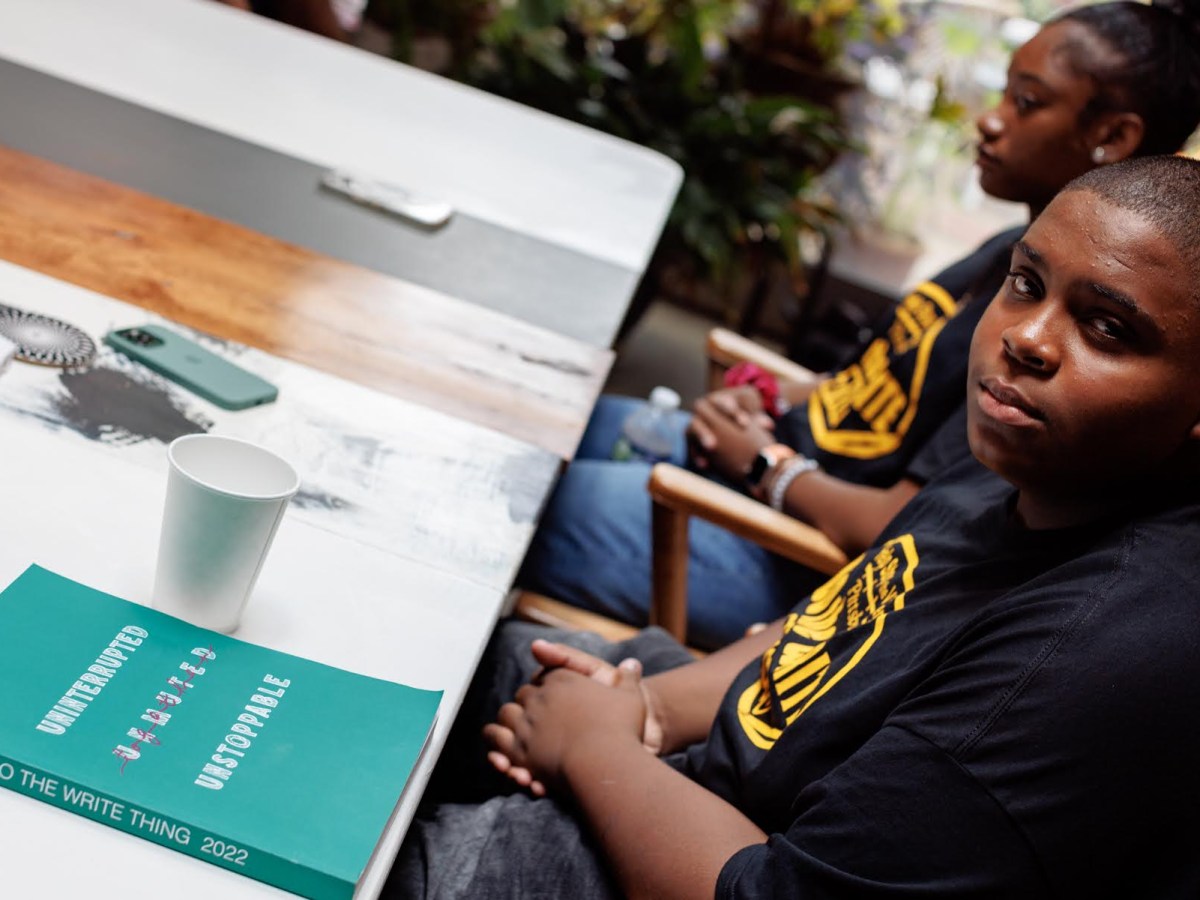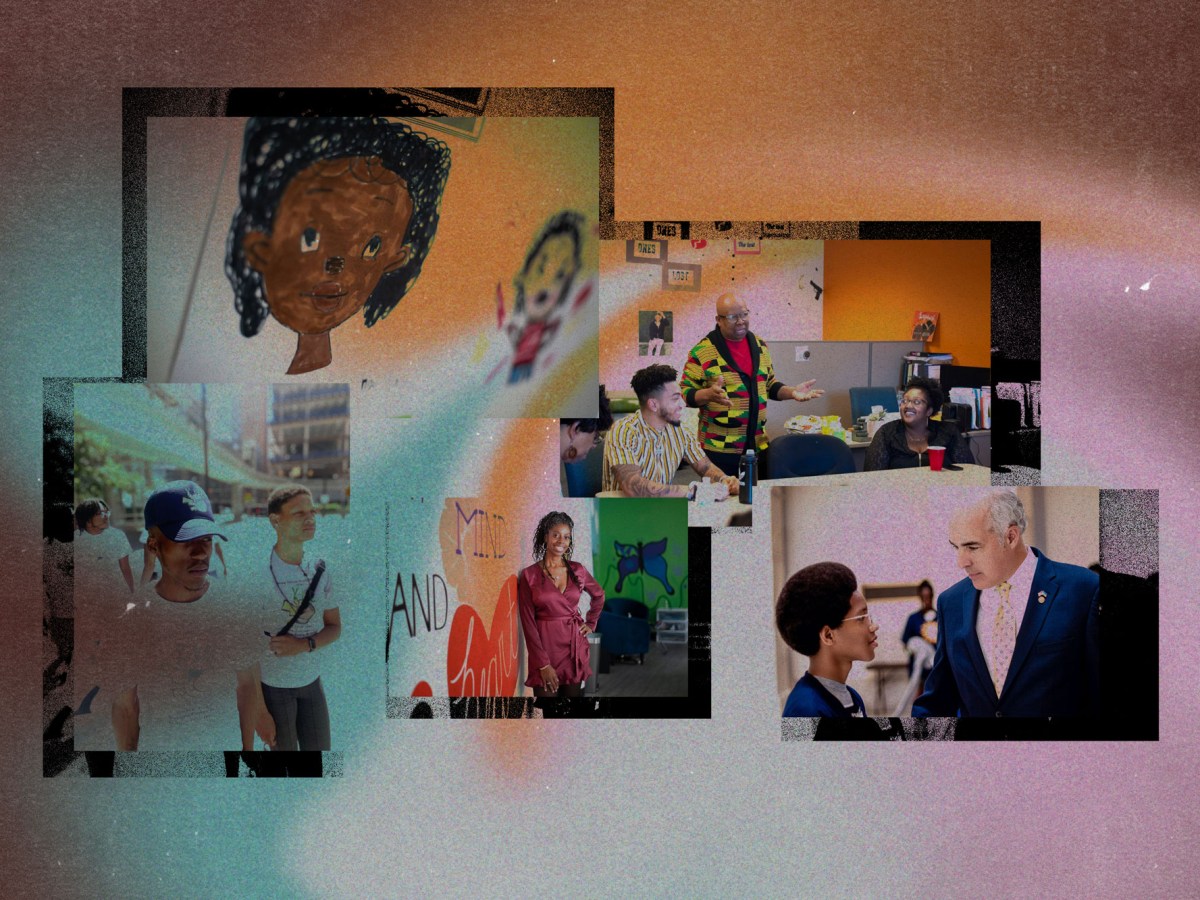Young people have not been shielded from the spike of gun violence in the Pittsburgh area. They have been innocent bystanders, victims and the ones holding the guns. What’s at the root of this violence among teenagers and how is it affecting them?
Jourdan Hicks, host of the From the Source podcast by PublicSource, speaks with two high school freshmen who are also youth ambassadors focused on bringing more understanding to discussions about youth violence and what can be done to stop its cycle.

TRANSCRIPT
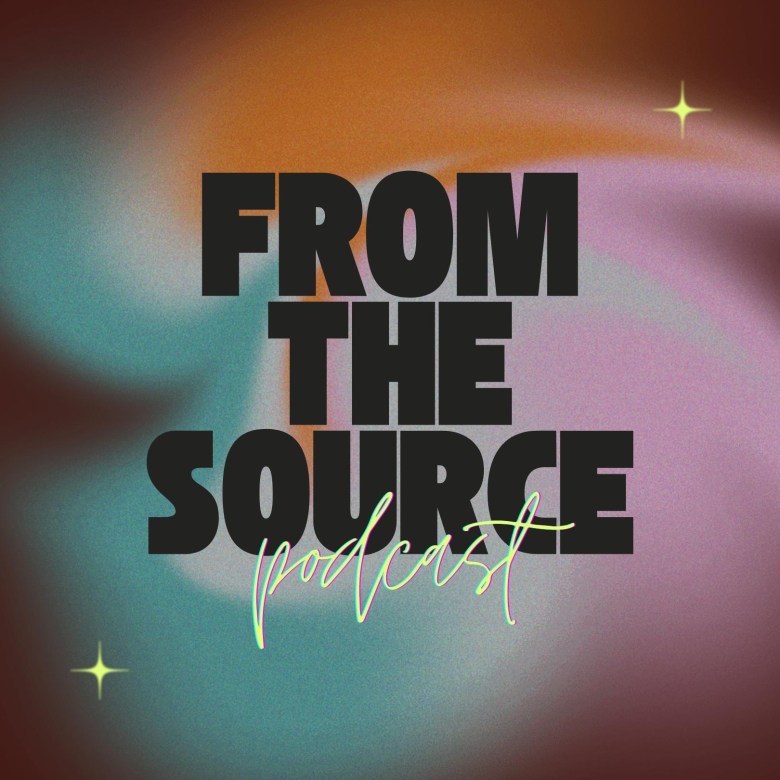
From the Source podcast Season 4
Where local teens voice their passions, concerns and prospects. Catch up with the kids these days.
Jourdan: The slang.
The social platforms.
The fashion.
It’s changed since I was 14, attending Taylor Allderdice.
But a lot of the undercurrents, the motivations, the life lessons, the things that are just oh my god, so important, they’re similar. Like the relationships teens have with their parents, their friends, safety, mental health and deciding what to do with their lives.
I’m an educator by degree, but working with youth isn’t my everyday job anymore. And, as a 31-year-old, I can no longer claim to be totally in touch with the kids these days. That’s why I’m back.
Jourdan Hicks here, your host of From the Source, brought to you by PublicSource. In season four, I’m bringing you inclusive, intimate and inspiring conversations with Pittsburgh-area teens who are contributing their opinions and ideas about the issues that they say are shaping youth culture. The stuff shaping who they are, how they act and who they think they’ll become.
Sources this season are speaking directly to listeners who are teachers, volunteers, peers, parents, mentors, siblings, givers, nonprofit-ers, program managers, project managers, therapists and the like. To tell you unabashedly what is going on these days.
Listening to the episodes of season four will show you where you can have more resourceful connections with the teens that you interact with. New episodes will debut every other Wednesday on PublicSource.org, Kidsburgh.org , Apple Podcasts and Spotify.
What I will do is produce, report and host. But who I am is a community advocate, an educationist, a millennial fourth-generation Pittsburgher with experiences that have given me the opportunity and unique ability to translate and provide context on many youth issues. You’ll hear some of that along the way.
Episodes this season will showcase teen voices on a range of issues from school safety and social justice to climate change, leadership, identity and health — just to name a few.
They will speak, and we will listen.
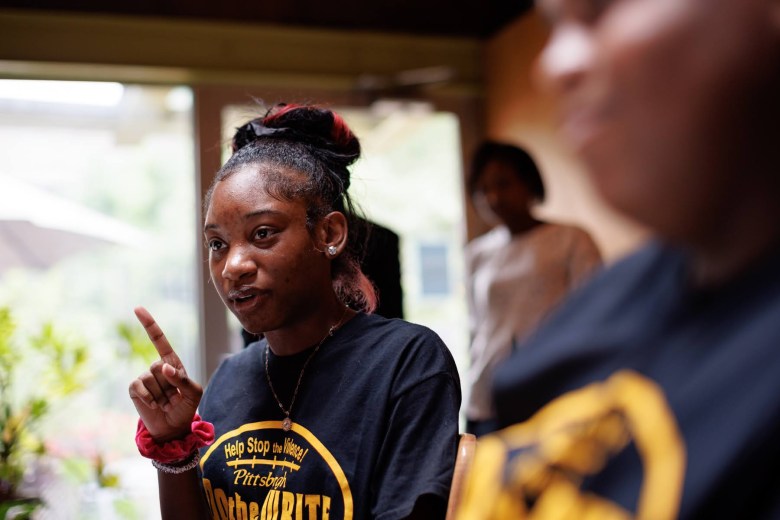
Jaia: Hello, my name is Jaia Harrison. I live at Avalon and I am 14 years old. And I go to Northgate High School and I’m a freshman.
Deahmi: Hi, my name is Deahmi Mobley. I’m from the Northside. I’m 14 years old, I go to Central Catholic and I’m a freshman.
Jourdan: Jaia and Deahmi are basically my co-hosts this week. They are the ones with the lived experience and some real, raw insight into our first pressing issue — violence. Youth violence, violence in communities that affect youth, gun availability, mental health, trauma — because all of it is related.
These two came to our attention after winning the Do the Write Thing challenge. They’re going to share about their brushes with violence and a whole lot more about what flips their switch and drives them to lead purposeful lives.
As of the end of September, there have been 77 homicides in Allegheny County; 13 of those homicides involved victims ages 1 to 18 years old.
There have been two recent high-profile incidents involving primarily youth: the Airbnb shooting on Easter morning on the North Side, where two teenagers lost their lives and, another just a few weeks ago, at Kennywood. Thankfully, there weren’t any fatalities.
In a lot of ways, Jaia and Deahmi are typical teenagers. Jaia, she’s a girly girl.
Jaia: Beauty and all that, makeup, hair, nails, like all that, that’s like been my passion my whole life.
Read Jaia’s essay
Making change: Youth violence and its effects in Pittsburgh
Jourdan: And loves being a big sister.
Jaia: The middle child, Juju or Jaylen, she’s 10 years old. And then I have my little baby brother, his name’s Junior. He just turned 2 a week ago. I love them with my whole heart. Like they are literally like my everything.
Jourdan: Deahmi is a gastronome; a lover of good food, especially his dad’s cooking.
Jourdan: What’s the last thing that he made that you was like, oh this, he snapped. This was really…
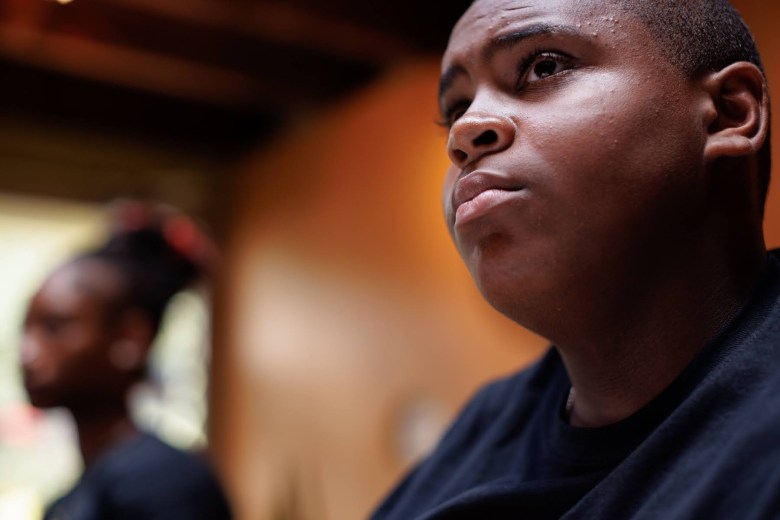
Deahmi: Ribs, mac and cheese and green beans.
Jourdan: And he thinks school starts too early.
Deahmi: I got to be there at 7:45, so I’d be up at like 5 in the morning.
Jourdan: Are you a morning person?
Deahmi: It be hard to get up.
Jourdan: But Jaia and Deahmi have stepped up to take on a special role: youth ambassadors for Do the Write Thing, where middle school students write about the impact of violence on their lives and are encouraged to make personal commitments to help eliminate violence. Jaia and Deahmi were recognized by their schools and honored in Washington, D.C., by national leaders and anti-violence advocates.
In D.C., the ambassadors received their honors at the Do the Write Thing National Recognition Week, where they met with Rep. Mike Doyle and Sen. Bob Casey to discuss youth violence issues.
Do the Write Thing
Jaia Harrison and Deahmi Mobley participated last year in the national Do the Write Thing writing program, in which middle school students write about the causes and effects of youth violence. The students’ writings were read by Duquesne University School of Law students and local leaders. Deahmi and Jaia, now high school freshmen, were chosen as Pittsburgh’s ambassadors and traveled to Washington, D.C. Their essays have been modestly edited with their consent.
Jaia: I was trying to like, you know, stay confident and whatever. And I really did my research on not only problems but also solutions. So really I, I’m very passionate about this. And when we stepped in there, like got straight to work, you know, telling them, our concerns in our community for, you know, kids, teens, adults, you know, it’s a lot going on.
It’s a lot going on in the world right now.
Youth violence and violence in Pittsburgh and expressing, you know what, what I go through, what other teens go through, you know, not only teens, kids, little kids. There’s little babies out here getting shot, you know. You can ask anybody that was in their room between me and my dad. We put the pressure on them. We’re going in there like, you have one chance to, you know, express these problems.
Jourdan: Neither Jaia nor Deahmi sought out the competition. Deahmi did it for a grade, while Jaia says her teacher made her do it.
Jaia: My teacher was like, “Yeah, you’re a good writer. You’re doing this. It’s fourth grade. If you don’t do it, I’m calling your mom.” And at first I, I thought it was bluff and I didn’t do it. I don’t know why, I thought she was bluffing. And then my mom, my mom calls me downstairs. She’s like, “Yeah, your teacher’s on the phone.” I’m like, No way. She was serious.
Jourdan: Jaia took her laptop into her bedroom and read the essay prompts.
Jaia: How have you experienced violence? What would you do to stop youth violence and what are some reasons for youth violence? I’m an overthinker, so I really took those three questions and kind of like really thought about ’em deeply.
Jourdan: She didn’t know it at the time, but the essay allowed her to start processing trauma she’d experienced just weeks earlier… It was mid-September, and Jaia and her cousins had spent the day begging their parents to go on a haunted hayride.
Jaia: My mom was like, “Yeah, I don’t know how, how, how I felt about this,” her and my godmom. And then, you know, we begged and begged and they were like, OK, like you can go, like, you know, we’re pretty responsible. So, you know, we all got ready. They came over, we all got ready together. We were like, should we wear this? Wear this? You know, it’s a hay ride, so we should probably dress comfy, not wear our favorite pair of shoes.
You know, we did our hair and I remember getting ready, like, and being excited.
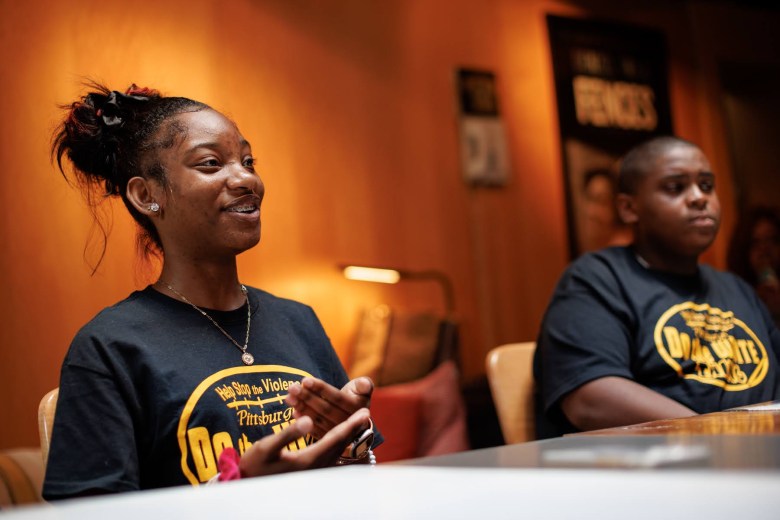
Jourdan: When they got there, they paid, went inside and then waited for some other friends to arrive.
Jaia: And we hear gunshots and at first — literally for like five quick seconds — everybody’s like, oh, that’s just ‘cause it’s the first day, they might be doing something special.
Jaia: And then I literally turn my head and I see his body and everybody’s like, oh, it is just, you know, a part of the scare night. This is the opening night. They’re probably just doing something special. And literally, no. I literally had to grab everybody and run and then they noticed everybody else running. I’m like, this isn’t a joke. Like, come on.
Jourdan: A 15-year-old boy died in the shooting. Jaia had to talk to the police, an experience she didn’t want to revisit during our conversations. Her mother and aunt slept with her in her bed that night. For a while, she felt numb. But as Jaia began to write about what happened, it was like a switch flipped inside of her.
Jourdan: So let’s talk about this switch. Explain it to me. Also, how do you activate your switch?
Jaia: Everybody switch is different, you know? And a lot of people don’t know how bright their light shine. Obviously it isn’t a physical switch. It’s a switch in your mind. I feel like my switch is motivation.Trying to make a difference in trying to make a change in my community.
Jaia: So as I’m writing this essay, I’m really thinking to myself like, I don’t wanna go through this again. I don’t wanna have to see my little cousins go through this again. I don’t wanna have to, you know, see somebody’s mother go through this again.
So really I think that’s where my light switch came from cuz it, it was always there, but I didn’t realize it was there and you know the Do the Write Thing essay and the whole entire experience really helped me flip my switch to wanna be an advocate to stop youth violence.
Jaia (reading her essay): Youth violence is a sensitive topic that needs to be looked at in a deeper perspective. I say sensitive because it’s very sad that people my age have lost their life due to this. Almost every kid can say that they have gone face to face with violence in different ways, whether it’s a fight, shooting, bullying or even school threats.
Youth violence has been an issue for many, many years, but over time it has progressively gotten worse. Teens today are killing each other left and right, and it has to come to an end. Youth violence takes a toll on the youth mental, physical and spiritual health today.
Jourdan: What are some of the reasons in your mind why people are shooting each other? Like these aren’t just guns going off randomly, like in accidental situations. Like people are making the decision to carry a gun, they’re making a decision to point the gun, pull it out, put the bullets in the gun, and then pull the trigger at some point. Why are teens shooting each other?
Jaia: Really, it’s a long list of reasons, but really first of all, social media. People see things on social media and think it makes, you know, makes people look hard, makes you look cool, and really it’s just sad ’cause it doesn’t allow people, teenagers like me to live their lives as much as they want to do things that you know they want to do. And also different neighborhoods, beefing, you know, all that stuff. And also just petty arguments. People turn to gun violence more than they turn to talking it out, ’cause people think that it makes you look soft, it makes you look scary.
Or even just ignoring the situation as a whole. People don’t do that anymore and really, sometimes you can’t — I’m not gonna say can’t — blame somebody for returning to that, but sometimes that’s all people know.
Nobody knows taking care of their mental health like as much anymore. Nobody knows just talking it out, you know, it’s either get violent or you look scary, you look like a clown, you look dumb. That’s all it is now. Mm-hmm.
Jourdan: How do we get people to understand that looking scary, looking like a punk, looking like people can talk to you any type of way, it makes you vulnerable. It’s like blood in the water and sharks are around, like you don’t want people to see you as being weak.
Jaia: Mm-hmm.
Jourdan: Where do you think that idea comes from? Like where people start thinking like, ‘Well I can’t look weak, I can’t, or I have to look strong, I have to be tough, I have to say stuff,’ like when does that start to come become apparent for young adults?
Jaia: Really, I think it starts young ‘cause I had that mentality at one point. I think when you’re around certain people who believe that, especially at a young age, like they drill that into your skull.
Even if adults don’t teach you it. Like, you know, people your age will drill that into your skull. Like, don’t do that. You look like a punk. You look weak, don’t talk about your emotions, nobody cares. That’s not true. It’s not true at all. And it’s, it couldn’t be further from the truth.
Jourdan: At age 14, Jaia is determined not to get caught up in this cycle. She’s got plans.
Jaia: Next year in high school, I could go to this program called Beattie to get my cosmetology license. And I plan on getting my cosmetology license by the time, um, high school ends, and then that way through college and law school and all that, I’ll be able to still make money and then I, the goal is to go to Harvard, you know, a Ivy League school. But I would also love to go to HBCU. That is another dream of mine. Harvard or Clark Atlanta. Those are like my top two schools in my head right now. Or Howard.
Jourdan: Where do you go get your nails done? Or do you do them?
Jaia: I did them myself.
Jourdan: Yeah. I was like, wait, hold on, let me see. I see that you favor a, is it square, would you say? A square?
Jaia: Yeah, square. I’m a square girl.
Jourdan: I like the square moment, too. So what is your nail design for the people who aren’t going to be able to see it? Like what would they see?
Jaia: Well, you see on my nails some hot pink, glossy nails. And then on my ring fingers, I have this heart nail charm and it’s like pink pearls shaped in a heart.
And then on my thumbs, I have more nail charms. And they’re bows. Very girl.
Jourdan: Girly, girly girl. Love it. Love it, love it.
M U S I C I N T E R L U D E
Jourdan: For Deahmi Mobley, education and youth violence are intimately linked. When kids are engaged academically, they’re less likely to turn to violence to solve problems.
Deahmi: It’s not just that the better supplies is gonna keep kids in school. It’s not. It’s the way that you’re treated, like some students come into the building where you got teachers that’s there and caring.They’re trying to really know, make sure you’re understanding what you’re doing because they ain’t going want to just, oh, here you go. Hey, they ain’t gonna pass you easy like that. They’re going to make sure that you understand what you got going on.
But then you got the teachers where they just gonna see, uh, you done wrote everything down. Here you go, they gonna pass you onto the next grade. You go to the next grade, they be like, who done taught you this? I thought you learned this last year. They’re gonna be looking at you crazy, looking at your parents crazy because then you come into a building, now they gotta teach you everything that you didn’t get taught. And then that’s pushing the curriculum back.
Read Deahmi’s essay
One love, one fight for tomorrow
Jourdan: Deahmi started the 2022-23 school year at Pittsburgh Perry but now attends Central Catholic High School in Oakland. It’s a private school.
Deahmi and his family decided it would be better for him to attend a school with a rigorous curriculum and more resources than his neighborhood school. Judge Dwayne D. Woodruff and wife, Joy Maxberry Woodruff helped Deahmi pay his tuition to school. They’re also the chairs of the local Do the Write Thing chapter.
Jourdan: What would you say is a reason why these students aren’t leaning more into their education and leaning more into violence or somehow ending up in situations where violence occurs?
Deahmi: Probably, I would say that they’re probably not leaning into their education because they don’t really have nobody to be there for ’em. And then you have the students that are like, yeah, mom and dad at the house with you every day, all day, making sure you’re doing your work, making sure your homework’s done.
But you know, you, you still had them kids where they don’t got mom or they don’t have dad. Making sure that everything that they gotta do is done. So that support piece.
Jourdan: Um, one thing I think that comes through in your interview is that you’re really close to your dad. I don’t know if that’s your best friend, but it gives off best friend vibes. Like you talk about him, he talks about you. Y’all both say what y’all admire about each other, what you love about each other and the importance of y’all having a relationship. So help us to like understand, like this great broad, big love that you and your dad had for one another.
Deahmi: Our relationship is like a relationship some kids don’t get to have like, it’s like he really there for me. Do you know like when, I don’t know if your father was around when you were younger, but it was like he was there to show me how to ride a bike. He was there to show me how to swim. He was there to teach me how to do this and teach me how to do that. So it’s like a really, it is like a stage where he came from, like he came from nothing and showed me how to do stuff that he wasn’t able to be taught. He had to learn on his own.
Jourdan: I wanna jump into like this gun violence piece a little bit more. So they don’t have anybody to support them; they’re obviously feeling feelings, making sense of these things for themselves, but why are they shooting people?
Deahmi: I think that they’re shooting at each other because like somebody’s talking down on them or they’re talking behind their back. Going behind their back and then they going to go shoot up a school or going to go shoot at the person that’s really talking down on them.
Jourdan: For why?
Deahmi: They’re shooting at ’em because they don’t, they don’t like being talked down on, their feelings and hurt.
Jourdan: I think there’s something that we may not identify with that are happening inside of young adults, teenagers, that we wanna make sure that we hit on with our conversation because you’re saying that teens are struggling, they’re being disconnected from them, communities disconnected from opportunities, disconnected from their education, and they’re making these decisions to hurt other people because of like this laundry list of reasons.
How is that violence affecting the community overall?’ Cause these are individual decisions that people are making, right? But how is it impacting your teen group, teen culture as you are also growing up and trying to make good decisions and study and be good people and be connecting your community amongst this chaos of people making the decision to be violent?
Deahmi: It’s like, it’s really affecting our communities because like if you got kids that like to go outside, then there’s chances of not being able to go outside because now you’re seeing a shooting every other day. And now that you’re seeing shootings every other day, you’re scared because you don’t want to lose your child behind a gun shootout where it ain’t have nothing to do with ’em. It was an innocent bystander. Your child’s now at risk of losing their life. Like you can’t really put names on bullets.
Jourdan: It’s like a precarious situation that you end up in if you live in an environment where people are in conflict with one another or you amongst conflict some way somehow in people source shooting.
How did you, how do you avoid the pressure of being tough, avoid the pressure of feeling like, or people perceiving you as not worthy because of the way you dress or the way you look or the way you talk, or these things that maybe may make other people feel invaluable? How did you skrt-skrt, like not become a victim to that or not succumb to that, do you think?
‘How I can make a change’: Youth programs are helping the next generation halt the cycle of gun violence
Deahmi: I can’t let people’s words hurt me, so I just let them say what they gonna say. I, I’m zone ’em out. Whenever they talking down, I zone ’em out. You can’t let somebody’s words try to get at you. ’Cause once they get at you, Now you wanna revenge and now you want to go shoot somebody because they talking down on you.
You can’t let ’em do that, can’t let ’em get in your head. ’Cause if they get in your head, now a chance you either being locked up or dead and some parents ain’t gonna be able to handle you being locked up in jail or you being dead. So I zone everything out when I can.
Jourdan: So this is kind of crazy to me because in some ways there is a person who would say, somebody’s talking stuff about me from talking about my shoes or talking behind my back or saying I’m not tough.
I can’t let them do that. So I’m going to be aggressive towards them. And I hear you saying I can’t let them do that because I’m confident in myself and I can’t let their words affect me in that way.
Deahmi: Yeah. You can’t let ’em like, you really can’t let ’em get at you like any type of way, even though you know that you might not dress like a supermodel, you still can’t let ’em get in your head because of what they got going on. They may look like they a supermodel trying to walk down on a fashion show, but you may not look like that. And it don’t matter. You don’t like, long as you able to speak the proper ways and make sure that you’re doing the proper things, you don’t need to worry about nobody else long as you doing you to the fullest extent.
Deahmi (reading essay): We need to do better as a whole. Instead of putting each other down, we should bring each other up. Instead of balling up a fist, we should hold someone’s hand. Instead of picking up a gun, we should pick up some books and watch how the society and us as a community change as a whole.
Jourdan: In his essay, Deahmi wrote about the death of his brother.
Deahmi: He took me as like his little brother. That’s what, what you doing little brother? It wasn’t no Godbrother. What you doing? It was like little brother. It wasn’t no God, no nothing. His little brother, like, as if his mom had me, like, and all of his sisters called me that ever since.
Jourdan: Just bro. How do you link gun violence, teens using guns to engage in violent acts to the loss of your brother?
Deahmi: My brother was in the streets, so it was like with him being in the streets, it was like he was doing things that the kids, the same, the kids in my generation now are doing.
Jourdan: After my interviews with Deahmi and Jaia, I gathered the following:
Being intimidated and being afraid is an important dynamic of why teens are shooting and killing each other.
Remember that lightswitch example that Jaia gave earlier for feeling confident and motivated? What I took from that is asserting worthiness and value of self is a requirement among teens. Some teenagers will stumble or fail with this because their lightswitch isn’t flipped on.
To have the confidence not to choose violence, teenagers have to know and believe they have the potential to do good and influential things in life.
Having affirming attention from adults – being invited to share a meal or having the extra push of encouragement to finish an assignment — can help to flip that lightswitch on.
Join us for the next episode of From the Source, where we’ll meet 14-year-old Cayah Leavy. She says it’s never too soon to begin talking to teens about brain health, emotional health and mental health.
Season four of From the Source Podcast is produced, reported and hosted by me, Jourdan Hicks, and edited by Halle Stockton. Liz Reid of Jeweltone Productions produced and mixed this episode.
We continue to interview young people for this podcast season as we speak, so if you’re curious to learn how you can share your story with us or nominate a young person, ages 13-18, to appear on an episode of From the Source, you can get in touch with me by sending me an email at jourdan@publicsource.org. PublicSource is an independent nonprofit newsroom in Pittsburgh.
Visit PublicSource.org to read the award-winning essays written by Jaia and Deahmi along with photos by PublicSource photojournalists and a related story on how teens can make change in stopping the cycle of youth violence by PublicSource health reporter Amelia Winger.
You can find all of our reporting and storytelling at PublicSource.org. I’m Jourdan Hicks. Stay safe, be well.

